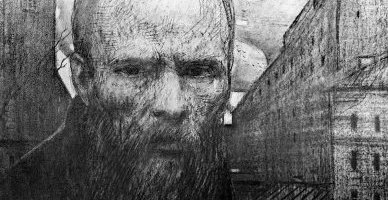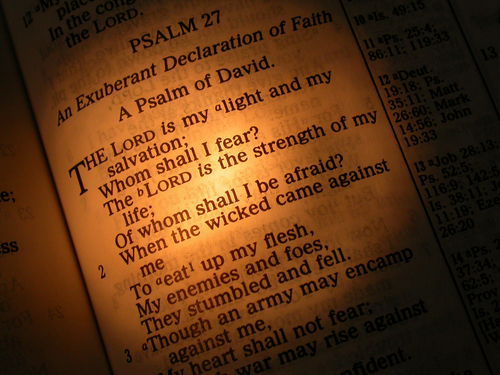Yesterday was Fyodor Dostoevsky’s birthday. He died in 1881. I’d do the math to tell you how old he would have been yesterday, but that’s math. Which isn’t going to happen, in this brain.
Dostoevsky is my favorite dead Russian. I have a few dead Russians that I like, but he is my most favorite-est. I think he could have taught Tolstoy a thing or two about character development. He certainly created characters that better connected with his readers, than Tolstoy. With Tolstoy, I’m like “Will you just get on with it?” and “Why do all your characters seem so whiny?” With Dostoevsky, I’m more like “Yes–tell me how this character’s brain works!” and “Don’t let this story end–I want to know what happens next!”
Dostoevsky is my favorite.
One of the reasons for that, is that he was obviously a thinker. He had a philosophical bent to his writings, and married that thought to commentary on the nature of sin and man and the nature of God, through the way his characters reacted to the world around them–as well as how they react to their own minds and souls.
It’s good stuff.
I’ve read three of his major works: Crime and Punishment, The Idiot and The Brothers Karamazov. The Brothers K–I found that to be captivating. Crime and Punishment I found to be thought-provoking. And The Idiot was nearly painful to read, though not necessarily in a bad way. And all three I may go back and re-read again, some day, once I move to my one room isolated cabin in Montana. Someday.
I think that what sets Dostoevsky apart from Tolstoy and others of his contemporaries, was “felt thought”.
He was an ideological novelist; the ideas that his characters had–even the very thoughts they thought–became a part of who they were. And all of it was so masterly woven together, that, if you’ve read the book, you can’t help but picture a character from his books, without also instantly sensing some of the major thoughts and ideas that shaped who that character was. For instance, when I think of Raskolnikov, from Crime and Punishment, my mind instantly conjures up a dichotomy of ideas, thoughts, and feelings about him—anti-social, a bit of a psychopath, but infused with compassion and warmth at the same time. In fact, I can describe, in a sense, the thoughts in Raskolnikov’s mind far better than I can describe the events in the book, or even what he was depicted as looking like—because it is the thoughts and ideas that stuck deep in my brain.
The really interesting idea here, though, is how this relates to us as Christ-followers. I’m not talking about the religious aspects that Dostoevsky brushed upon in his writings. No, I’m talking about the concept of “Felt Thought.”
One of Dostoevsky’s closest friends, Nikolai Strakhov, described his friend like thus:
The most routine abstract thought very often struck him with an uncommon force and would stir him up remarkably. . . . A simple idea, sometimes very familiar and commonplace, would suddenly set him aflame and reveal itself to him in all its significance. He, so to speak, felt thought with unusual liveliness.
I love the idea of this. I love the idea that Dostoevsky “felt” thoughts so deeply–even routine and familiar ones. Oh, I can also see and acknowledge that to possess that ability could also be very troublesome and distracting (at best), and maddening at worst, but still….Dostoevsky was impassioned. He was no cynic.
I wish I possessed more of that.
Too often–far too often–I approach the things of God with a detached, cold viewpoint. I want to analyze it, tear it apart, throw it into a spreadsheet and collect the data. I want to quantify the mysteries of God into neat little formulas and stats that I can easily digest and either accept or–I hate to admit this–even reject. I don’t want to feel thoughts about God. I want to think about God—I like thinking about God. Very much so. But when it comes to feeling those thoughts; that’s when I tend to run. Away. From Him.
I think that is natural, though, to some degree. Feeling deeply about anything–God, family, abortion, slavery, evangelism, even our dog–feeling deeply can hurt. It can be so, so painful. And, even the very good things–even joy can be painful, sometimes. And who runs to embrace such pain? I have a high pain tolerance, and yet I don’t actively go looking for pain.
But, sometimes pain is necessary. Sometimes, if we have a cancer that must be removed, the surgeon must perform surgery, deeply, and it hurts. But that hurt is a result of necessary correction, in our body.
The same goes for the things of God. It hurts, to think of His sacrifice, for us, on the cross. It hurts to think of His mercy, and our need for His mercy. It hurts, to look Him in the eyes.
I know this, full well.
And yet, sometimes that is exactly what is needed. Sometimes we need to “feel thought”, and experience our God in the same way the woman did, the “sinner”, who washed Jesus feet with her tears.
A friend of mine once said words to me that were painful to hear, but necessary. It was in the midst of a frightfully difficult situation, as I was tossed and thrown about by difficult thinking about who God was, and who I am. His words were this: “Run to God, not away from Him.”
It is easy to run away from God. Even to this day, it is my inclination to run from Him. To avert my eyes; to take sideways glances as opposed to looking Him full in the face. To study God, as opposed to worshipping God.
I have to fight it, nearly every morning.
But here’s the thing. Just like Dostoevsky’s characters are fully embracable in their very realness, I want to be real before my God.
Authentic. Just like Raskolnikov.
And authentic-ness comes from being completely honest before my God, and running to Him, not away from Him.
Authentic-ness comes from allowing “felt thought” a place in worship.


